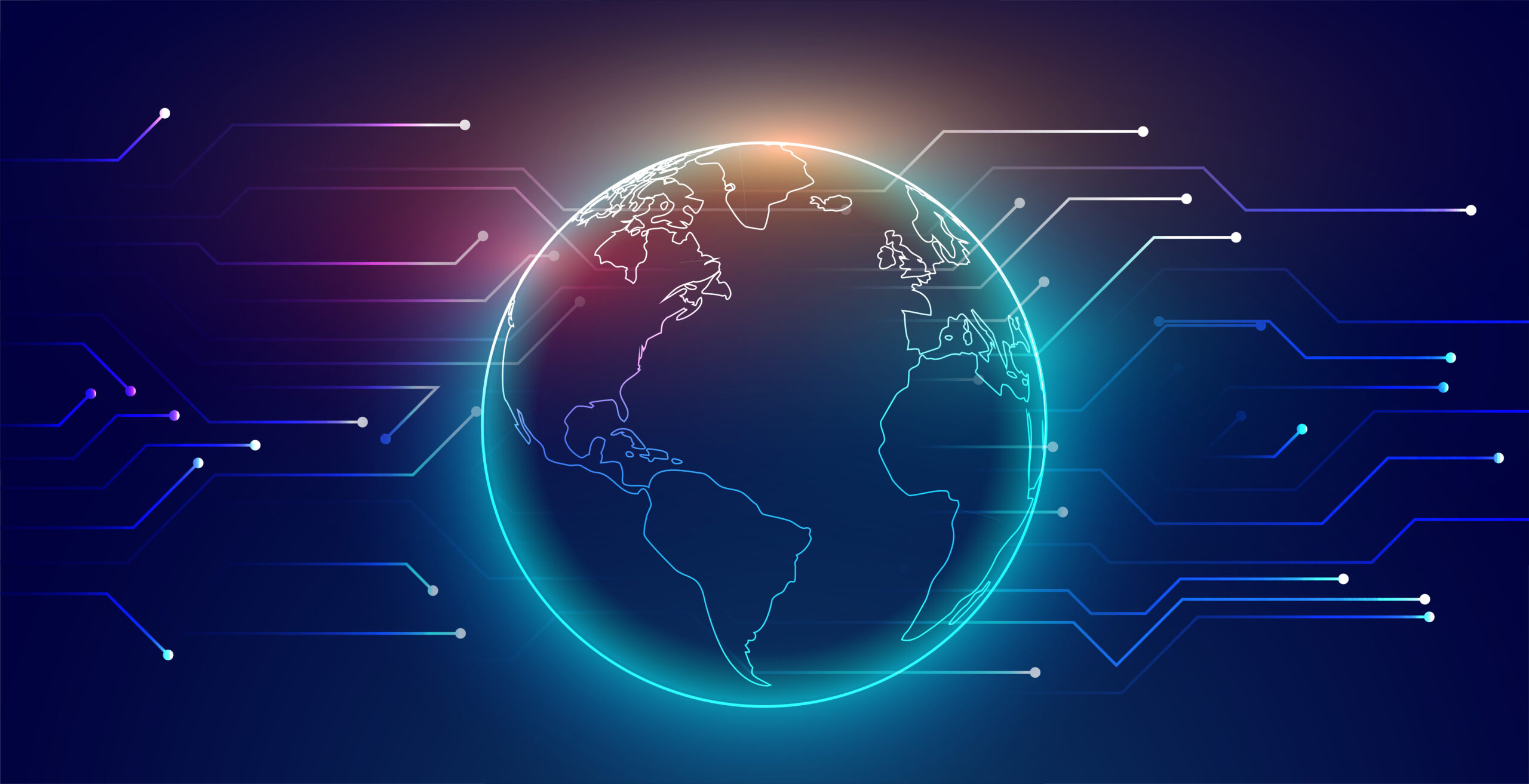
Technology is the application of scientific knowledge, skills, tools, and techniques to solve problems, meet human needs, and improve the quality of life. It encompasses a wide range of innovations, from simple tools and machines to complex systems and networks.
The history of technology dates back to the earliest human civilizations, and its development has been shaped by a variety of factors including societal, cultural, economic, and environmental influences.
Origin of Technology
The origins of technology can be traced back to prehistoric times when early humans discovered how to use tools made from stone, wood, and bone. These primitive tools were used for hunting, gathering, and building shelters, and marked the beginning of human ingenuity in solving practical problems. Over time, humans developed more advanced tools and techniques, such as pottery, weaving, and metalworking, which enabled them to improve their daily lives and create more complex societies.
One of the major milestones in the history of technology was the invention of agriculture around 10,000 years ago. This marked a shift from a nomadic, hunter-gatherer lifestyle to settled farming communities. Agricultural advancements, such as irrigation and domestication of animals, led to surplus food production, which in turn enabled the growth of populations, the emergence of specialized labor, and the development of early civilizations.
Ancient Technology
The ancient civilizations of Mesopotamia, Egypt, China, and the Indus Valley made significant contributions to technological advancements. They developed systems of writing, built monumental structures, and invented tools and machines for agriculture, transportation, and warfare.
The invention of the wheel, for example, revolutionized transportation and trade, while the development of metalworking techniques allowed for the creation of more advanced tools and weapons.
Middle-Age Technology
The Middle Ages saw the rise of great civilizations in Europe, Asia, and Africa, which made significant strides in technology. During this period, innovations such as the printing press, compass, and gunpowder had a profound impact on human society, leading to significant advancements in communication, navigation, and warfare.
Industrial Revolution Technology
The Industrial Revolution in the 18th and 19th centuries was a pivotal moment in the history of technology. It marked the shift from manual labor to machine-based production, transforming agriculture, manufacturing, and transportation. Inventions such as the steam engine and spinning jenny revolutionized textile production, while advancements in metallurgy and machinery led to the development of factories and modern manufacturing processes.
20th Century Technology
The 20th century witnessed unprecedented technological advancements, with breakthroughs in electricity, telecommunications, transportation, and computing. The invention of electricity and the development of electric motors and generators enabled the widespread use of electric power, transforming industries and homes. The invention of the telegraph and telephone revolutionized long-distance communication, while the development of the automobile and aviation transformed transportation and travel.
The latter half of the 20th century saw the rise of the digital revolution, with the invention of computers and the development of the internet. Computers and digital technology have had a profound impact on almost every aspect of human life, from communication and entertainment to healthcare and scientific research. The advent of smartphones, social media, and e-commerce has further transformed the way we live, work, and interact with each other.
Technology continues to advance at an unprecedented pace, with innovations such as artificial intelligence, virtual reality, and biotechnology shaping the future of humanity. These advancements hold great promise for solving some of the world’s most pressing challenges, such as climate change, disease eradication, and poverty alleviation. However, they also raise ethical, social, and environmental concerns that need to be carefully addressed.

Evolutions of Technology
In the span of three decades, technology has undergone a revolutionary transformation, shaping our daily lives and redefining industries. From the birth of the World Wide Web to the rise of artificial intelligence, here’s a comprehensive exploration of notable technological examples from 1990 to 2023.
1. World Wide Web (1990):
- Tim Berners-Lee introduced the World Wide Web, revolutionizing information sharing.
- HTML (Hypertext Markup Language) and HTTP (Hypertext Transfer Protocol) laid the foundation for website creation and browsing.
- This marked the beginning of the digital age, connecting people globally.
2. Mobile Phones and SMS (1992):
- The first text message was sent in 1992, heralding the era of SMS (Short Message Service).
- Mobile phones evolved from bulky devices to compact, portable communication tools.
- Nokia’s release of the iconic 3310 in 2000 further propelled mobile technology.
3. Windows 95 (1995):
- Microsoft’s Windows 95 introduced the Start menu, taskbar, and Plug and Play functionality.
- It marked a shift towards user-friendly interfaces, shaping the future of operating systems.
4. E-commerce Boom (Late 1990s):
- Amazon (1994) and eBay (1995) pioneered online shopping, transforming retail.
- Secure online transactions and the convenience of shopping from home became a reality.
5. Google Search Engine (1998):
- Google’s search engine revolutionized information retrieval with its efficient algorithms.
- PageRank technology became the backbone of internet search, making Google the go-to search engine.
6. Broadband Internet (Early 2000s):
- Broadband replaced dial-up, offering faster internet speeds and seamless connectivity.
- Streaming services like YouTube (2005) thrived due to improved internet infrastructure.
7. Social Media Explosion (Mid-2000s):
- Facebook (2004), Twitter (2006), and later Instagram (2010) transformed communication.
- Social media became integral to personal and business interactions globally.
8. iPhone and Smartphones (2007):
- Apple’s iPhone revolutionized mobile technology with a touchscreen interface.
- The app ecosystem flourished, changing how we work, communicate, and access information.
9. Cloud Computing (2010s):
- Cloud services like Amazon Web Services (AWS) and Microsoft Azure provided scalable and cost-effective solutions.
- Businesses embraced cloud computing, enhancing collaboration and data storage.
10. Rise of Artificial Intelligence (2010s): – AI applications, from virtual assistants to machine learning algorithms, transformed industries. Examples include Google’s AI-driven services and the widespread use of chatbots.
11. Internet of Things (IoT) (2010s): – IoT connected everyday devices, enabling smart homes and cities. Wearable technology, like fitness trackers and smartwatches, became popular.
12. 5G Technology (2020s): – The rollout of 5G networks revolutionized communication, offering ultra-fast internet speeds. Enhanced connectivity paved the way for advancements in augmented reality (AR) and virtual reality (VR).
13. Electric and Autonomous Vehicles (2020s): – Companies like Tesla accelerated the adoption of electric vehicles. Autonomous vehicle technology evolved, promising a future of self-driving cars.
14. Blockchain and Cryptocurrencies (2020s): – Blockchain technology gained prominence for its secure and transparent decentralized ledger. Cryptocurrencies, including Bitcoin and Ethereum, reshaped the financial landscape.
15. Metaverse (2023): – The concept of the metaverse gained traction, combining virtual and augmented reality. Companies explored immersive digital environments, impacting entertainment, work, and social interactions.
Conclusion
It has transformed the way we live, work, communicate, and solve problems, and continues to shape our future. From simple tools and machines to complex systems and networks, technology has.




Leave a Reply